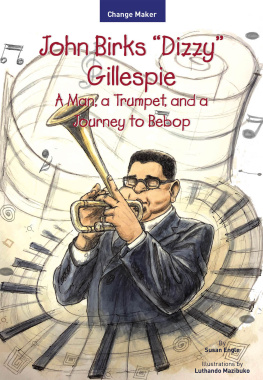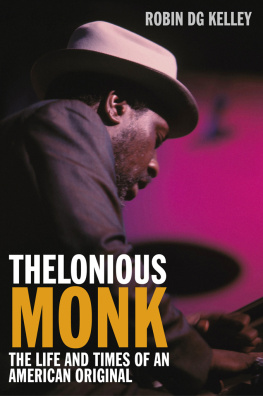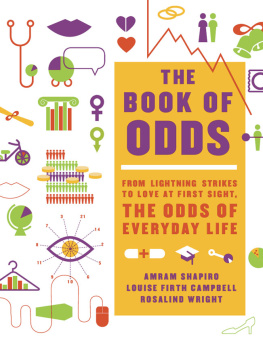First published 1968 by Paradigm Publishers
Published 2016 by Routledge
2 Park Square, Milton Park, Abingdon, Oxon OX14 4RN
711 Third Avenue, New York, NY 10017, USA
Routledge is an imprint of the Taylor & Francis Group, an informa business
Copyright 1968, 2001, 2010 David Amram
Foreword Copyright 2001 Douglas Brinkley
All rights reserved. No part of this book may be reprinted or reproduced or utilised in any form or by any electronic, mechanical, or other means, now known or hereafter invented, including photocopying and recording, or in any information storage or retrieval system, without permission in writing from the publishers.
Notice:
Product or corporate names may be trademarks or registered trademarks, and are used only for identification and explanation without intent to infringe.
Library of Congress Cataloging-in-Publication Data
Amram, David.
Vibrations : the adventures and musical times of David Amram.3rd ed.
p. cm.
Includes bibliographical references and index.
ISBN 978-1-59451-583-5 (hardcover : alk. paper)ISBN 978-1-59451-706-8 (pbk. : alk. paper) 1. Amram, David. 2. ComposersUnited StatesBiography. I. Title.
ML410.A534A3 2009
780.92dc22
[B]
2009036345
Designed and Typeset by Straight Creek Bookmakers.
ISBN 13 : 978-1-59451-583-5 (hbk)
ISBN 13 : 978-1-59451-706-8 (pbk)
by Douglas Brinkley
THE thermometer read 105 degrees for five straight days. It was so scorching hot in Tempe during the summer of 1982, in fact, that I wore white tube socks over my hands just to start the ignition and grasp the steering wheel of my Chevy pickup with bad brakes. I had just graduated from Ohio State University and my life drifted in front of me like a dream cloud unencumbered by storm fronts. My grueling day job as a just-hired Time-Mirror employee was wiring Phoenix-area ranch houses for cable TV, then a new fad sweeping the country. At night I lounged in air-conditioned comfort at an Arizona State University dormitory/apartment reading various books about the fabled Beat Generation. These Eisenhower-era bohemians were now offering confused Reagan-era progressives like myself new nonconformist ways of looking at what critic Kenneth Rexroth once longingly called, in summarizing Carl Sandburgs populist oeuvre, Old Time America.
On the Road, in particular, had captured my twenty-one-year-old imagination and its irrepressible author, Jack Kerouac, had become my literary lightning house, a charismatic prophet of rootlessness for the budding nomadic soul. It had been twenty-five years since On the Road was published and that July at Naropa Institute in Boulder, Colorado, there was a nine-day symposium paying homage to the classic Beat Generation novel. Naropas promotional literature advertised that Allen Ginsberg, Ken Kesey, Gregory Corso, William S. Burroughs, and Lawrence Ferlinghetti would be participating, along with a composer named David Amram. His name was unfamiliar to me so I did some investigation. The card catalogue at the Hayden Library showed that he had written an autobiography titled Vibrations. I immediately checked it out and devoured the uplifting prose in a few long night sessions. I had stumbled upon a new American hero, someone whose Whitmanesque enthusiasm for democratic ideals reflected my own.
Vibrations was a revelation to me. I identified totally with Amrams joie de vivre style that illuminated the pages of Vibrations, only unlike myself he was a musical prodigy, a wunderkind who had composed for Leonard Bernstein, performed with Jack Kerouac, jammed with Thelonius Monk, collaborated with Arthur Miller, recorded with Lionel Hampton, drank with Jackson Pollack, and acted with Allen Ginsberg. With carpe diem as his motif Amram had become one of the worlds most accomplished composers, conductors, and instrumentalists on French horn, pennywhistles, piano, shanai, dumbeg, and other ethnic instruments from around the world. The indelible impression I got from reading this virtuosos autobiography was that he was a one-man global jukebox who was also a gifted storyteller. There was something of the indomitable Pecos Bill in the unflappable Amram I encountered in Vibrations, it was as if this happy-go-lucky Renaissance musician could swirl a rope and catch a comet by the tail. By stark contrast, I was explaining to bored housewives in Mesa and Scottsdale the virtues of HBO. Somehow, getting Amram to sign my copy of Vibrations, which I had acquired in a used record store on Mill Avenue, had become an overweening objective of mine, a rite of passage so to speak, an initiation into the rarefied world of the Beats and classical music.
When Vibrations was first published in 1968 America was coming apart at the seams. The war in Vietnam had triggered a generational crisis. Hippies were burning draft cards and placing daisies in the rifles of National Guardsmen surrounding the Pentagon. The Kennedy brothers and Martin Luther King Jr. had just been assassinated. The Democratic National Convention in Chicago had turned into a riot when Mayor Richard Daley unleashed his police force on peaceful protestors. Doom and uncertainty hung in the air. Given this tumultuous environment it was quite a surprise when Amram published his charismatic memoir filled with upbeat nostalgia and compassionate reflection. Music was to Amrameven during the crucible of the Sixtiesthe great healer.
The significant thing about Amram as a composer, which he makes clear in this book, is that he belongs with those enlightened few who though well trained and proficient in traditional European classical music, have their roots in jazz. In his book review of Vibrations for Saturday Review in 1968, Victor Chapin wrote, His vision, which is that of all being part of a great whole, seems simple and obvious, but it is not, for composers have always been categorized and confined to schools or tendencies. The dividing line between one kind of music and another has been strictly drawn for centuries. However, as David Amram knows very well, its all different now. He is the sort of composer we must look to save formal music from its own destruction.
As a coming-of-age memoir, Vibrations is richly anecdotal, comically inspiring, and notable for its uncompromising honesty. A bedrock optimist, cynicism is always frowned upon by Amram, negativity tossed aside as the tormented tool of the spiritually oppressed. Having composed more than 100 orchestral and chamber music pieces as well as numerous scores for Broadway theater and feature films, Amram has dazzled four generations of audiences with his versatility, raw talent, and timeless performances. But the fun of Amrams musicand Vibrationslies in its surprises: his unlikely yet persuasive juxtapositions of seemingly disparate styles. Born David Wener Amram III on November 17, 1930, the cousin of conducter Otto Kelmpereer, this fast-paced autobiography begins with his cheerful childhood antics in Passagrille, Florida and his family farm in Feasterville, Pennsylvania. Almost from the cradle, music was Amrams lifeblood, and its impossible not to marvel at the wholesome spectacle of this nine-year-old boy performing Santa Lucia on his trumpet with the intensity of the young Louis Armstrong on the levee. What makes the early chapters of










